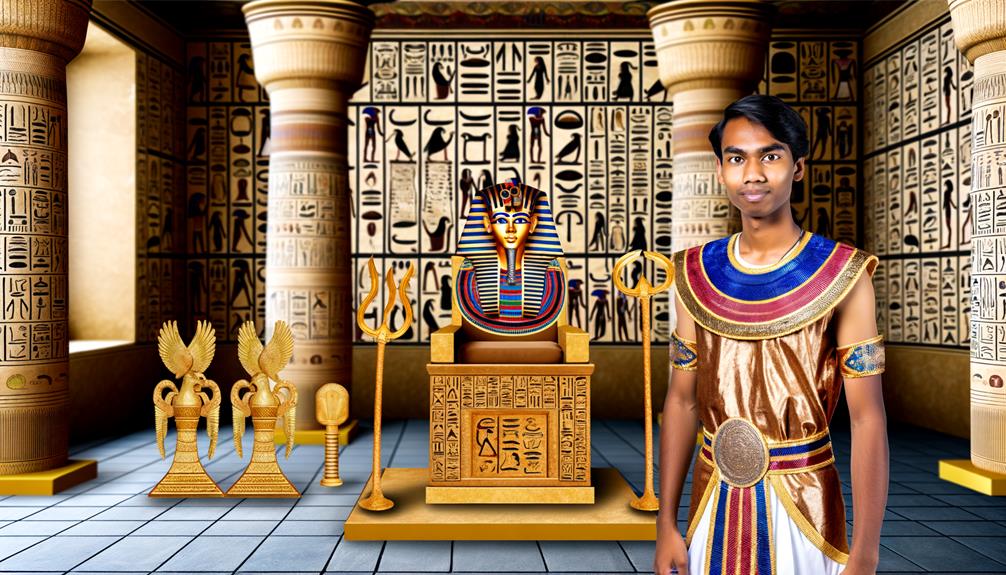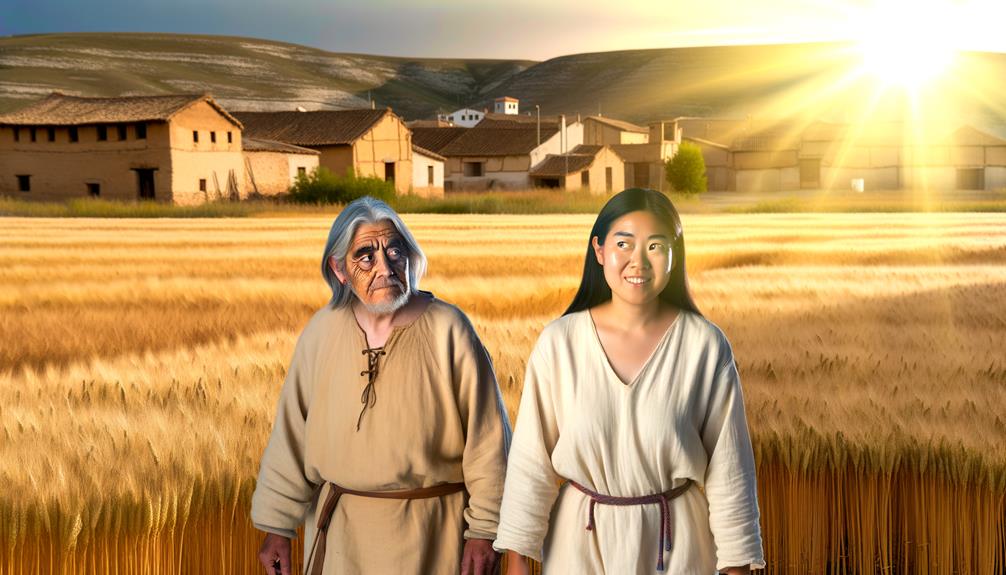Destiny Swapping Meaning In The Bible: Spiritual Warfare
In the Bible, destiny swapping encompasses dramatic shifts in life paths influenced by divine will or key human decisions. Prominent narratives include Jacob and Esau’s birthright exchange, Joseph’s rise from slavery to power, Ruth’s integration into Naomi’s lineage, David’s anointing as king, Saul’s transformation into Paul, Esther’s brave intervention, and Peter’s journey from denial to apostolic leadership.
These stories illustrate the intertwining of human agency with divine providence, highlighting themes of redemption, transformation, and divine orchestration of history. Exploring these narratives further provides a deeper understanding of how destiny intertwines with faith and divine purpose.

Destiny Swapping Meaning in the Bible: Spiritual Exchange & Biblical Insight
| Aspect | Description |
|---|---|
| Term Definition | Spiritual or supernatural exchange of life purpose or divine assignment |
| Biblical Example | Jacob deceiving Esau and Isaac to obtain the blessings meant for Esau |
| Key Scripture | Genesis 27:1‑40 – Rebekah and Jacob orchestrated the swap of Esau’s blessing (desireemmondesir.com) |
| Spiritual Implication | Highlights deceit and manipulation that redirect God’s intended plan |
| Symbolism | Represents wrongful seizure of destiny, spiritual inheritance, or calling |
| Modern Interpretation | Used in deliverance ministries to describe demonic or human-induced destiny theft |
| Theological Warning | God may allow some things, but deception cannot override His divine will |
| Relevance Today | Encourages believers to discern rightful calling and guard against spiritual manipulation |
Jacob and Esau’s Birthrigh

The narrative of Jacob and Esau’s birthright in the Bible provides a profound exploration of themes such as divine sovereignty, human agency, and the complexities of familial relationships.
Jacob’s acquisition of Esau’s birthright for a mere bowl of stew underscores the interplay between human decisions and divine plans. This transaction, seemingly trivial, shifts the trajectory of both lives, illustrating how human actions align or conflict with divine intentions.
The theological implications are significant: God’s providence often works through unexpected, even morally ambiguous, actions.
Additionally, the strained bond between the brothers reflects the broader biblical motif of sibling rivalry, emphasizing the intricate dynamics within families chosen by God for specific purposes.
This narrative invites readers to contemplate the mysteries of divine will and human responsibility.
Joseph’s Rise to Power

Joseph’s ascent to power in Egypt serves as a compelling illustration of divine providence orchestrating human events to fulfill a greater purpose.
Sold into slavery by his brothers, Joseph’s trajectory seemed bleak. Yet, through a series of divinely influenced events, he rose to become Pharaoh’s right-hand man. This transformation underscores the theological theme of God’s sovereignty in redirecting destinies.
Joseph’s ability to interpret dreams, a gift from God, positioned him to save Egypt from famine, ultimately preserving his own family.
This narrative exemplifies the biblical principle that adversity can be a precursor to divine elevation. It also highlights the moral imperative of forgiveness, as Joseph reconciles with his brothers, revealing a providential plan far greater than human intentions.
Ruth and Naomi’s Journey

Much like Joseph’s story of divine orchestration, Ruth and Naomi’s journey underscores the biblical theme of God’s providence in guiding seemingly ordinary lives toward extraordinary purposes.
Ruth, a Moabite widow, exemplifies unwavering loyalty by choosing to stay with her Israelite mother-in-law, Naomi, despite societal pressures and personal loss. This narrative highlights the transformative power of faith and commitment.
Ruth’s eventual marriage to Boaz not only secures her and Naomi’s future but also places her in the lineage of King David, showcasing God’s intricate planning.
Through Ruth’s steadfastness and Naomi’s guidance, the story reveals how divine intervention can transform despair into hope, emphasizing the theological principle that God can repurpose human suffering into a greater divine plan.
David’s Anointing as King

David’s anointing as king signifies a pivotal moment in biblical history, where divine selection and human leadership converge to fulfill God’s covenantal promises. This event, narrated in 1 Samuel 16, illustrates God’s sovereign choice, bypassing Saul, Israel’s first king, due to his disobedience.
Samuel’s anointing of David underscores the theological principle that God looks at the heart rather than outward appearances. David, a shepherd boy, is chosen to lead Israel, symbolizing a destiny shift orchestrated by divine will.
This anointing foreshadows David’s future role as the central figure in Israel’s monarchy, reinforcing themes of humility, divine favor, and the fulfillment of God’s redemptive plan through seemingly unlikely candidates.
Saul’s Conversion to Paul

Saul’s transformative encounter on the road to Damascus marked a pivotal moment in biblical history, signifying a radical shift from persecutor to proponent of the Christian faith.
This dramatic conversion not only redefined his identity as Paul but also inaugurated a new missionary purpose that would profoundly influence the spread of Christianity.
Theologically, this event epitomizes the concept of divine intervention and the redemptive potential inherent in destiny swapping.
Road to Damascus Experience
The transformation of Saul to Paul on the road to Damascus stands as a profound example of divine intervention and destiny alteration in biblical narrative. This significant event is rich with theological implications and underscores the power of God’s grace to radically alter human paths.
Examining this occurrence reveals several key elements:
- Divine Encounter: Saul’s experience with a divine light and voice reoriented his life’s purpose.
- Immediate Obedience: Despite initial blindness, Saul followed divine instructions without hesitation.
- Ananias’ Role: A disciple named Ananias, though hesitant, played a vital part in Saul’s conversion.
This event exemplifies the profound capacity for personal and spiritual transformation through divine influence.
New Missionary Purpose
Paul’s encounter on the road to Damascus not only transformed his identity but also redefined his mission, setting him on a new trajectory as a fervent missionary for the Christian faith. This pivotal event marked a profound shift from Saul, the zealous persecutor of Christians, to Paul, the ardent apostle.
Analyzing this transformation reveals a divine orchestration where his prior fervor was redirected to propagate the Gospel. Contextually, Paul’s new purpose involved extensive travels, church planting, and theological instruction.
Theologically, his epistles became foundational texts, articulating doctrines that continue to shape Christian theology. His conversion underscores the theme of destiny swapping in the Bible, illustrating how a dramatic shift in purpose can align with God’s overarching plan for redemption.
Esther’s Divine Appointment

Esther’s divine appointment is exemplified through her courageous decision to approach King Xerxes, risking her life to save her people. This highlights the interplay between divine providence and human agency.
Mordecai’s wise counsel serves as a pivotal theological element, emphasizing the importance of discernment and faith in God’s overarching plan.
Together, these points illustrate a transformative moment where personal destiny aligns with a greater divine purpose, reinforcing the biblical theme of destiny swapping.
Esther’s Courageous Decision
In the narrative of Esther, her decision to approach King Xerxes uninvited serves as a pivotal moment illustrating the intersection of divine providence and human agency. Esther’s actions reflect immense courage and faith, fundamentally altering her destiny and that of her people. This moment is laden with theological significance, revealing how individual choices can align with divine purposes.
Esther’s decision highlights:
- Risk: Approaching the king uninvited could result in death.
- Faith: Esther’s trust in God’s providence and protection.
- Purpose: Recognition of her royal position as divinely orchestrated for such a time.
This decision underscores the profound interplay between human initiative and divine sovereignty, showcasing a model of faith-driven action.
Mordecai’s Wise Counsel
Drawing from his deep understanding of Jewish tradition and God’s providence, Mordecai’s counsel to Esther serves as an essential catalyst for her recognition of a divinely appointed role in the salvation of her people.
Mordecai’s wisdom is evident in his strategic advice, urging Esther to embrace her position as queen not merely as a privilege but as a divine appointment. His famous admonition, “And who knows but that you have come to your royal position for such a time as this?” (Esther 4:14), underscores a theological perspective that God orchestrates events for a higher purpose.
This counsel not only instills courage in Esther but also aligns her actions with a greater divine plan, showcasing the profound interplay between human agency and divine sovereignty.
Peter’s Transformation

Peter’s transformation in the Bible exemplifies a profound journey from impulsiveness and denial to unwavering faith and leadership within the early Christian church. His evolution is a demonstration of the redemptive power of divine grace and personal resilience.
Initially characterized by his impetuous nature, Peter’s denial of Jesus during His crucifixion marked a low point in his spiritual journey. However, post-resurrection, Peter’s redemption is highlighted by:
- His reinstatement by Jesus with the thrice-repeated command to ‘feed my sheep.’
- His bold proclamation of the Gospel at Pentecost.
- His leadership role in the Jerusalem Council.
This transformation underscores the theological premise that one’s destiny can be profoundly altered through divine intervention and personal repentance.
Conclusion
The biblical narratives of Jacob and Esau’s birthright, Joseph’s rise to power, Ruth and Naomi’s journey, David’s anointing as king, Saul’s conversion to Paul, Esther’s divine appointment, and Peter’s transformation collectively illustrate the theme of destiny swapping.
These stories encapsulate divine intervention, human agency, and the unfolding of God’s plan.
Through these accounts, the theological message emphasizes the sovereignty of God, the unpredictability of destiny, and the transformative power of faith and obedience in the biblical context.






